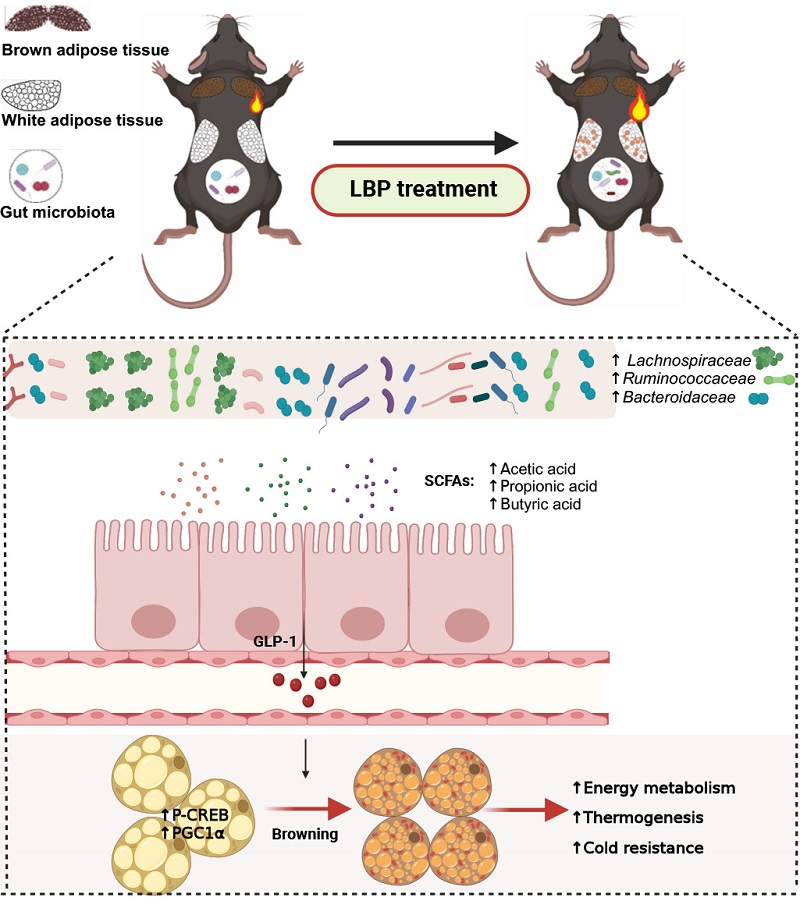Scientific Explanation of Lycium barbarum "Cold and Heat Resistance" Efficacy Revealed
The "Ben Cao Gang Mu (Compendium of Materia Medica)" mentions that Lycium barbarum, a traditional and valuable medicinal herb in China, have the effects of "strengthening muscles and bones with prolonged use, promoting longevity, and resisting cold and heat", but the scientific explanation of these effects has yet to be deciphered.
Recently, researchers from the Institute of Biophysics of the Chinese Academy of Sciences and the Shanghai Institute of Materia Medica of the Chinese Academy of Sciences collaborated to investigate the matter. They have, for the first time, revealed that Lycium barbarum exert their "cold and heat resistance" effects by promoting the browning of white adipose tissue and increasing thermogenesis, thereby resisting cold stress.
This study, elucidating the scientific underpinning of the "cold and heat resistance" efficacy of Lycium barbarum, was published in The FASEB Journal on September 4, 2024.
Using C57BL/6 mice as a model, the researchers conducted long-term treatment with Lycium barbarum polysaccharides (LBP) and found that these polysaccharides helped maintain the body temperature of mice under cold stress. This effect was achieved by promoting the browning of white adipose tissue, increasing energy expenditure, and enhancing thermogenic function.
Further mechanistic studies revealed that supplementation with LBP increased the abundance of Bacteroidetes in the gut microbiota of the mice, reduced the Firmicutes/Bacteroidetes ratio, and increased the abundance of short-chain fatty acid-producing bacteria such as Lachnospiraceae, Ruminococcaceae, and Bacteroidaceae, as well as the levels of short-chain fatty acids in the cecal contents.
Excitingly, the release level of GLP-1 in the gut increased, and this was associated with enhanced thermogenic function through the activation of the CREB/PGC1α signaling pathway in inguinal white adipose tissue (iWAT), leading to increased energy expenditure.
This study is the first to reveal the scientific connotation of the "cold and heat resistance" efficacy of traditional Chinese medicine, providing a scientific reference for interpreting the principles of other traditional Chinese herbal medicines with similar effects. Additionally, LBP are expected to become a safe dietary supplement for populations in cold environments.

Figure: Lycium barbarum polysaccharides enhance thermogenesis and energy metabolism by regulating gut microbiota, thereby improving tolerance to cold stress.
(Image by CHEN Chang's group)
Article link: https://faseb.onlinelibrary.wiley.com/doi/10.1096/fj.202400870R
Contact: CHEN Chang
Institute of Biophysics, Chinese Academy of Sciences
Beijing 100101, China
E-mail: changchen@ibp.ac.cn
(Reported by Prof. CHEN Chang's group)

